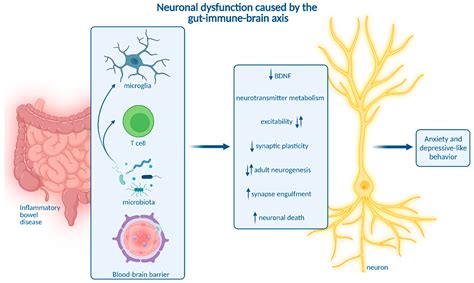Intro
Discover how acupuncture helps alleviate pain, stress, and anxiety through 5 proven methods, promoting holistic wellness, natural healing, and chronic pain relief, with benefits for mental health and overall wellbeing.
The concept of acupuncture has been around for thousands of years, originating in ancient China as a form of traditional medicine. Despite its long history, acupuncture remains a topic of interest and debate in the modern world. Many people are curious about how this practice can help with various health issues, and whether it is a viable alternative or complementary therapy to conventional medicine. As we delve into the world of acupuncture, it becomes clear that its benefits extend far beyond pain relief, encompassing a wide range of physiological and psychological effects. The mechanisms behind acupuncture may not be fully understood, but the results are undeniable, making it an attractive option for those seeking holistic healthcare solutions.
Acupuncture is based on the idea that the body has a complex network of energy pathways, or meridians, through which a vital energy, known as qi, flows. According to traditional Chinese medicine, the flow of qi can be disrupted by various factors, leading to disease and discomfort. By inserting thin needles into specific points along these meridians, acupuncturists aim to restore the balance of qi, promoting health and well-being. While this concept may seem abstract to some, the practical applications and outcomes of acupuncture are very real, offering significant benefits for individuals dealing with chronic conditions, stress, and other health challenges.
The integration of acupuncture into modern healthcare is a testament to its efficacy and the growing recognition of its value. As research continues to uncover the scientific basis of acupuncture's effects, it is becoming increasingly accepted as a complementary therapy, often recommended by healthcare professionals for a variety of conditions. From pain management and stress relief to improving sleep quality and enhancing overall well-being, the applications of acupuncture are diverse and expansive. Whether you are a skeptic or a believer, the evidence supporting the benefits of acupuncture is compelling, inviting exploration and consideration of this ancient yet versatile practice.
Introduction to Acupuncture Benefits

Acupuncture has been practiced for centuries, with its roots in traditional Chinese medicine. The practice involves the insertion of fine needles into specific points on the body, which are believed to stimulate the body's natural healing processes. There are numerous benefits associated with acupuncture, ranging from pain relief and stress reduction to improved sleep quality and enhanced immune function. As we explore the world of acupuncture, it becomes clear that this ancient practice has a lot to offer in terms of promoting health and well-being.
How Acupuncture Works
The exact mechanisms behind acupuncture are not fully understood, but research suggests that it can stimulate the release of various neurotransmitters and hormones, which can help to alleviate pain, reduce stress, and promote relaxation. Acupuncture can also increase blood flow to specific areas of the body, which can help to reduce inflammation and promote healing. Additionally, acupuncture can help to regulate the body's energy, or qi, which is believed to flow through the body along specific pathways, or meridians.Benefits of Acupuncture for Pain Relief

One of the most well-known benefits of acupuncture is its ability to provide pain relief. Acupuncture can be used to treat a variety of pain conditions, including chronic back pain, migraines, and arthritis. The exact mechanisms behind acupuncture's pain-relieving effects are not fully understood, but research suggests that it can stimulate the release of pain-relieving chemicals, such as endorphins and opioids. Acupuncture can also help to reduce inflammation, which can contribute to pain and discomfort.
Types of Pain Treated with Acupuncture
Acupuncture can be used to treat a variety of pain conditions, including: * Chronic back pain * Migraines and headaches * Arthritis and joint pain * Fibromyalgia * Neuropathic painAcupuncture for Stress Relief and Anxiety

In addition to its pain-relieving effects, acupuncture can also be used to reduce stress and anxiety. Acupuncture can help to regulate the body's stress response, which can become overactive in individuals experiencing chronic stress and anxiety. By stimulating the release of relaxing neurotransmitters, such as serotonin and dopamine, acupuncture can help to promote relaxation and reduce feelings of anxiety and stress.
Techniques Used in Acupuncture for Stress Relief
There are several techniques that can be used in acupuncture to promote stress relief and relaxation, including: * Ear acupuncture: This involves the insertion of needles into specific points on the ear, which can help to stimulate the release of relaxing neurotransmitters. * Body acupuncture: This involves the insertion of needles into specific points on the body, which can help to regulate the body's stress response and promote relaxation. * Moxibustion: This involves the burning of herbs, such as mugwort, to stimulate the flow of qi and promote relaxation.Acupuncture for Improved Sleep Quality

Acupuncture can also be used to improve sleep quality. By regulating the body's energy and promoting relaxation, acupuncture can help to reduce stress and anxiety, which are common causes of insomnia and other sleep disorders. Additionally, acupuncture can help to regulate the body's circadian rhythms, which can become disrupted in individuals experiencing sleep disorders.
Benefits of Acupuncture for Sleep
The benefits of acupuncture for sleep include: * Improved sleep quality * Increased duration of sleep * Reduced symptoms of insomnia and other sleep disorders * Enhanced overall well-being and quality of lifeAcupuncture for Enhanced Immune Function

Finally, acupuncture can also be used to enhance immune function. By stimulating the release of immune-boosting chemicals, such as interferon and interleukin, acupuncture can help to promote the body's natural defense against infection and disease. Additionally, acupuncture can help to reduce stress and anxiety, which can weaken the immune system and make individuals more susceptible to illness.
Techniques Used in Acupuncture for Immune Function
There are several techniques that can be used in acupuncture to enhance immune function, including: * Acupressure: This involves the application of pressure to specific points on the body, which can help to stimulate the release of immune-boosting chemicals. * Cupping: This involves the use of cups to create suction on the skin, which can help to stimulate blood flow and promote immune function. * Tuina: This involves the use of massage and manipulation to stimulate the flow of qi and promote immune function.What is acupuncture and how does it work?
+Acupuncture is a form of traditional Chinese medicine that involves the insertion of fine needles into specific points on the body. It is believed to stimulate the body's natural healing processes and promote health and well-being.
What are the benefits of acupuncture?
+The benefits of acupuncture include pain relief, stress relief, improved sleep quality, and enhanced immune function. It can also be used to treat a variety of health conditions, including chronic back pain, migraines, and arthritis.
Is acupuncture safe and effective?
+Acupuncture is generally considered safe and effective when performed by a licensed and experienced practitioner. However, as with any form of healthcare, there are risks and potential side effects, such as bruising, dizziness, and infection.
How many acupuncture sessions are needed to see results?
+The number of acupuncture sessions needed to see results can vary depending on the individual and the condition being treated. Some people may experience relief after just one or two sessions, while others may require multiple sessions to achieve optimal results.
Can acupuncture be used in conjunction with other forms of healthcare?
+Yes, acupuncture can be used in conjunction with other forms of healthcare, including conventional medicine and other forms of complementary therapy. In fact, many healthcare professionals recommend acupuncture as a complementary therapy to help patients achieve optimal health and well-being.
As we conclude our exploration of the benefits of acupuncture, it is clear that this ancient practice has a lot to offer in terms of promoting health and well-being. From pain relief and stress relief to improved sleep quality and enhanced immune function, the applications of acupuncture are diverse and expansive. Whether you are a skeptic or a believer, the evidence supporting the benefits of acupuncture is compelling, inviting exploration and consideration of this versatile and effective form of healthcare. We invite you to share your thoughts and experiences with acupuncture, and to explore the many resources available to learn more about this fascinating practice. By working together and sharing our knowledge and experiences, we can promote greater understanding and appreciation of acupuncture, and help to ensure that this valuable form of healthcare is accessible to all who need it.
